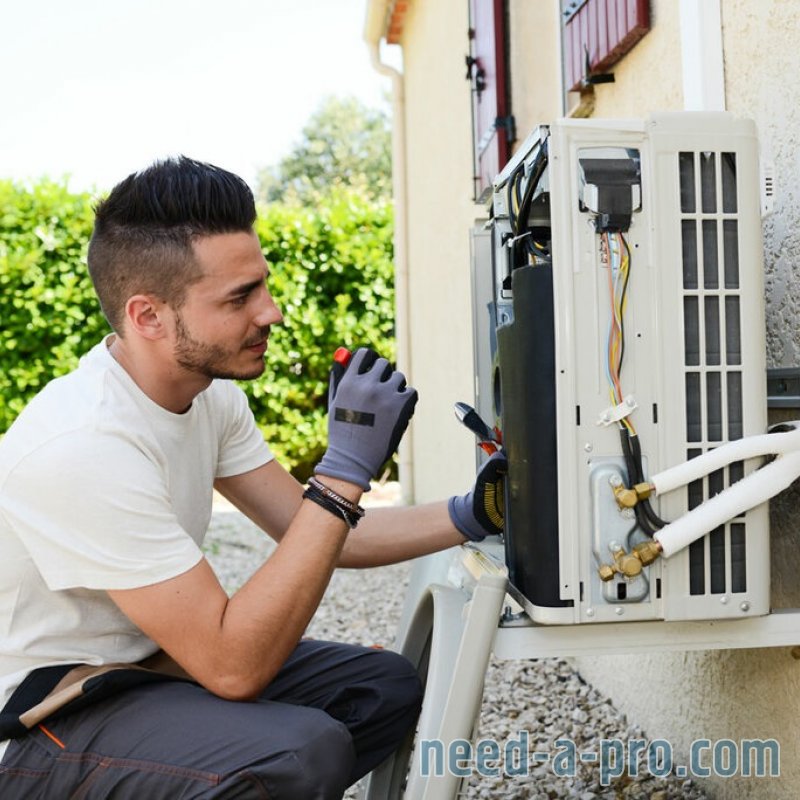In today's world, where a lot of time is spent inside, the importance of clean air cannot be overstated. Allergens and pollutants can easily accumulate in indoor spaces, aggravating allergies and respiratory issues for many individuals. One of the most efficient strategies to combat these airborne irritants is through the use of an HVAC system. Understanding how to leverage your heating, ventilation, and air conditioning system can lead to a significant improvement in the air quality within your living space.
This article will explore effective methods to reduce allergens using your HVAC system. Whether you're a property owner aiming to improve comfort or someone keen on understanding the basics of HVAC, you'll find insights into keeping your HVAC system in good shape, choosing the right air filters, and maximizing airflow to create a healthier living environment. Let’ https://www.berkeys.com/air-conditioning/ into how the HVAC system can function not just to regulate temperature in your home, but also to ensure the air you breathe is purified and free of allergens.
Understanding Heating, Ventilation, and Air Conditioning
Heating, Ventilation, and Air Conditioning stands for the Heating, Ventilation, and Air Conditioning, serving as critical parts of modern internal climate control. This setup functions to ensure pleasant living and professional environments by managing climate, dampness, and air cleanliness. An HVAC infrastructure can be centralized or independent, with various configurations designed to cater to different types of structures and specific needs. Understanding how these systems operate is essential for property owners and organizations alike.
The thermal part of an HVAC installation often consists of furnaces heat exchangers, and water heaters, which work to create heat during chilly months. These units utilize various energy sources, including electricity, gas, or oil, to produce heat and deliver it throughout the space via pipes or radiators. Conversely, cooling units are tasked with lowering the temperature of indoor atmosphere in warmer periods, employing cooling agents to absorb and displace heat to the exterior.
Air circulation is another important aspect of HVAC systems, as it facilitates fresh air circulation and preserve indoor air quality. This process includes both passive and forced methods to provide outdoor air and expel stale air. Adequate ventilation not only minimizes allergens and pollutants but also avoids issues like mold growth and excessive humidity, making it integral to a wholesome internal setting.
Heating, Ventilation, and Air Conditioning Servicing and Efficiency

Routine servicing is important to keep your HVAC system functioning effectively. This includes changing air filters frequently, ideally every month to three months, depending on usage and the type of filter you have. A fresh filter allows for optimized airflow, which helps your system operate with less effort to maintain a comfortable temperature in your house. Additionally, scheduling regular certified inspections can help identify potential issues before they develop into costly repairs, ensuring that your system operates at maximum efficiency all year long.
Proper ventilation also plays a key role in maintaining HVAC efficiency. Ensuring vents and ducts free from clutter enables air to flow unimpeded throughout your home. It is essential to check and clean your air ducts at intervals, as dirt and debris can build up over time, leading to lowered airflow and increased energy costs. By ensuring that your HVAC system has the necessary airflow it needs, you can improve its efficiency and extend its lifespan.
Investing in regular maintenance not only improves the efficiency of your HVAC system but can also bring about significant savings on your energy bills. When your system is functioning effectively, it uses fewer energy to heat or cool your home. Intelligent thermostats can enhance this by optimizing temperature settings based on your habits and needs, further minimizing energy consumption. Maintaining your HVAC system with a focus on efficiency can cultivate a healthier living environment while keeping your costs in line.
Enhancing Indoor Air Standards
Boosting indoor air quality is vital for supporting a healthy living space, and your HVAC unit plays a critical role in this process. A well-functioning HVAC system helps remove out pollutants such as dust, pet hair, animal fur, and various allergens that can lead to allergies and breathing problems. Regular maintenance, including updating filters and cleaning ducts, makes sure that your system operates efficiently and effectively promotes pure air circulation in your home.
A significant aspect of boosting indoor air quality is proper ventilation. Implementing ventilation methods can help eliminate stale air and bring in fresh outdoor air. Advanced HVAC systems often come equipped with ventilation capabilities that automatically adjust airflow based on indoor air quality indicators. This not only does it helps dilute indoor impurities but also minimizes humidity levels, which can avert the development of mildew and mildew.
Lastly, selecting the right air filters is important for trapping harmful allergens. High-Efficiency Particulate Air (HEPA) filters are engineered to catch tiny particles, making them perfect for those reactive to allergens. Transitioning to these high-end filters can notably improve your home's indoor air quality, helping you breathe more freely and creating a better living space for you and your family.
